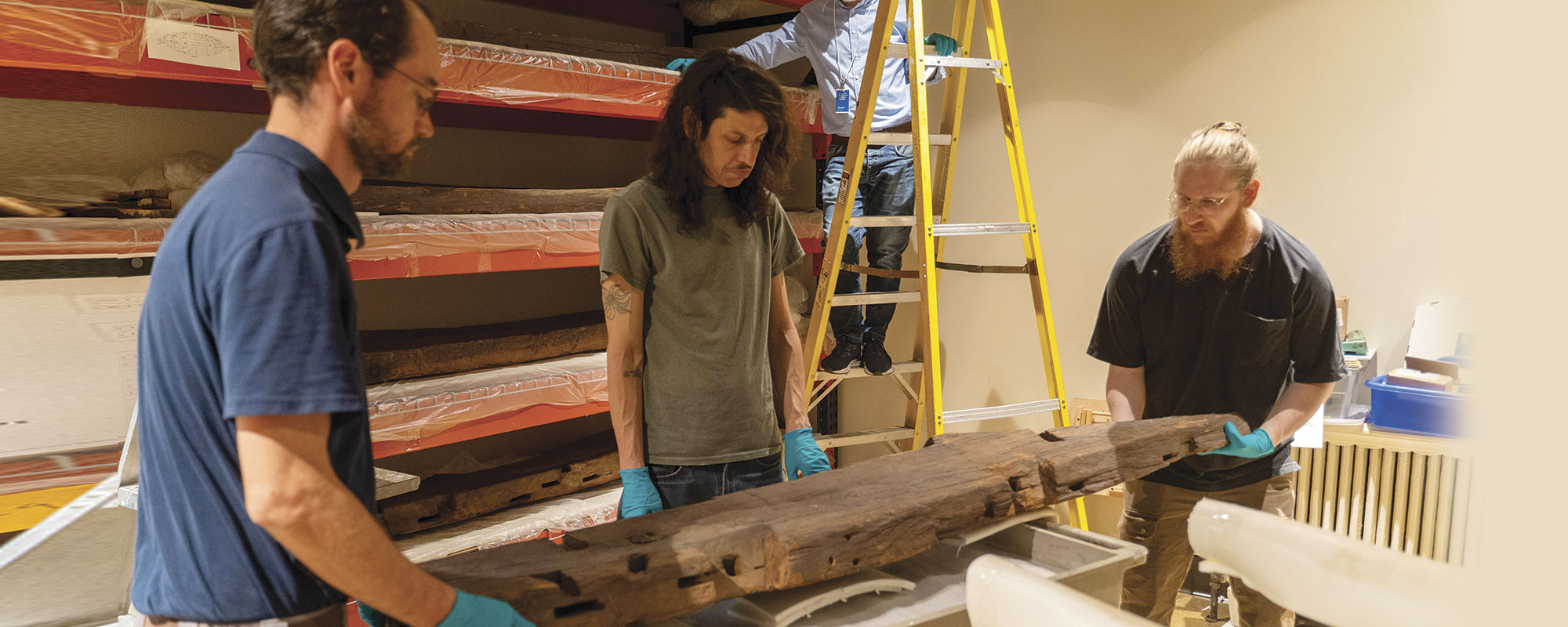Giving Forward
Who:
Bill and Lois Soff
What THEY support:
Carnegie Museum of Natural History
Why it matters:
“As a teacher, we don’t have a lot of discretionary income, but we want to invest in something that leaves a legacy. And I can’t think of a better place than the museum.” –Bill Soff
Five years ago, Bill and Lois Soff joined a focus group at Carnegie Museum of Natural History about changing the Walton Hall of Egypt.
The couple had been coming to the museum for decades—Lois since she was a little girl—and always made a point of visiting the displays of ancient Egyptian artifacts. A high school history teacher in Hempfield, Pennsylvania, Bill taught Egyptian history as part of an advanced placement course.
But even though they cherished this wing of the museum, they understood that change is necessary to make history relevant for younger generations of visitors.
“In order for them to connect, we need to be able to present artifacts in a way that can connect with the kids,” Bill says. “And the museum is doing that.”
This opportunity to engage with history and continue learning from the past is what has kept the Soffs supporting the Carnegie Museums. But the institution has meant different things to them at different stages in their lives.
For Lois, who grew up 14 miles northeast of the city, coming to the museums in Oakland was an adventure. As a child, she was fascinated with miniatures displayed in the quiet darkened gallery between the Halls of Architecture and Sculpture. Later, as a student at Penn State University interested in archeology and art history, her attention shifted to the gargantuan casts of Greek temples.
“As I grew up, things changed and I’ve seen the transformation of the museums,” she exclaims. “People don’t realize how fortunate we are, the things that we have in the museums.”
Bill grew up about 100 miles north of Pittsburgh in Meadville, Pennsylvania He didn’t discover the Carnegie Museums until he moved to the city after graduating from Dickinson College in 1981 with a degree in history and political science.
Early in their courtship, Bill and Lois would visit the Museum of Natural History on dates. They eventually married and had a daughter, Maggie, whom they would bring to see the dinosaurs. Then, when Bill left a corporate job to become a teacher in 2003, Carnegie Museum of Natural History became a favorite field trip for his students. It was a place that made history tangible for teenagers.
“It’s one thing to have a textbook that talks about Egypt, which is very static,” he says. “But it’s another to actually be in a room with a funerary boat and try to imagine what it looked like painted Egyptian blue with a red stripe and who would’ve been on the boat.”
Their longtime connection with the museum—and Bill’s professional interest in keeping these exhibitions relevant to younger audiences—is why they were eager to join the discussion group in 2019 about updating the Egyptian exhibition, which has largely remained the same since the early 1990s.
The concepts they discussed with museum leaders that day are now becoming a reality. In 2022, the museum embarked on a multiphase overhaul of the Egyptian exhibition. The 4,000-year-old funerary boat excavated from Dahshur, Egypt was disassembled and is now undergoing conservation work in a visible lab on the third floor as part of an exhibition that opened in March called The Stories We Keep. When it is reassembled, the Dahshur boat will be the centerpiece of a permanent exhibition called Egypt on the Nile, which will relate the importance of rivers—something quite familiar to people in Pittsburgh—to life in ancient Egypt.
The exhibition will continue to engage visitors young and old long after Bill’s teaching days are done.
“As a teacher, we don’t have a lot of discretionary income,” he explains. “But we want to invest in something that leaves a legacy. And I can’t think of a better place than the museum.”
To learn more about how you can support the Egyptian exhibits and collections, contact Rae Giard at giardr@carnegiemnh.org or 412.578.2472.
Receive more stories in your email
Sign upTags:
Science & Nature
